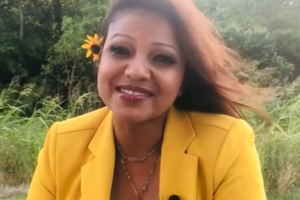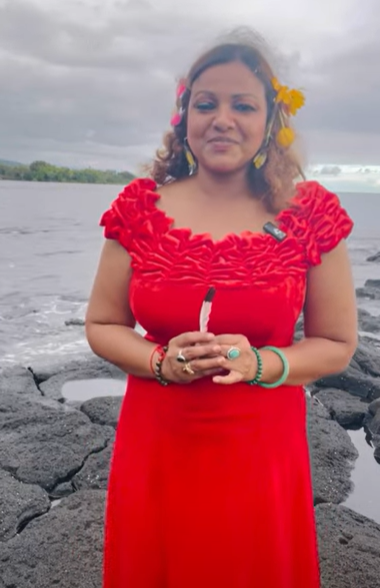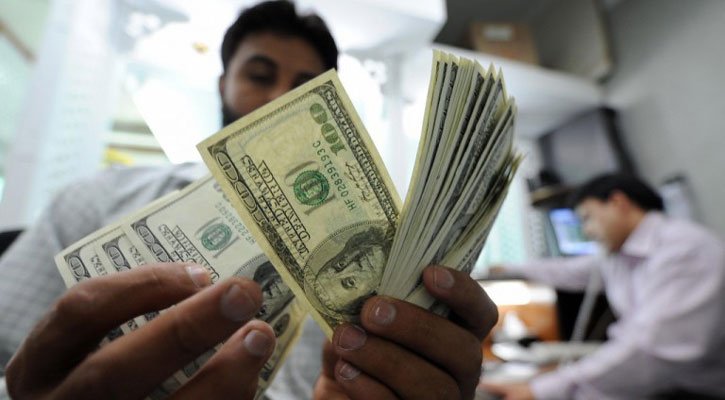Labour Secretary R Alexander Acosta on Tuesday faced fresh calls to resign, and rising pressure from inside the Trump administration, over his role in brokering a lenient plea deal over sex crimes for New York financier Jeffrey E Epstein as a federal prosecutor in Miami more than a decade ago.
Acosta, 50, said this week that the plea agreement, in which Epstein served 13 months in jail after being accused of sexually abusing dozens of young women and girls, was the toughest deal available in a complex and difficult case. The prosecution, he said, would have stood a far better chance of succeeding in the state courts — the same argument he has been making for years.
“The crimes committed by Epstein are horrific, and I am pleased that NY prosecutors are moving forward with a case based on new evidence,” Acosta wrote Tuesday on Twitter.
“With the evidence available more than a decade ago, federal prosecutors insisted that Epstein go to jail, register as a sex offender and put the world on notice that he was a sexual predator,” he continued. “Now that new evidence and additional testimony is available, the NY prosecution offers an important opportunity to more fully bring him to justice.”
That is not likely to satisfy critics, who have long contended that Epstein should have faced a far harsher charge than a single count in state court of soliciting prostitution from a minor. The unusual arrangement reached with the Palm Beach County Sheriff’s Office allowed Epstein to leave the county stockade six days a week to go to work. His jail sentence was for 18 months, but he was released five months early.
And in a twist that was later ruled illegal, the agreement between Acosta and one of Epstein’s lawyers, Jay P Lefkowitz, was initially kept secret from Epstein’s victims.
“Mr Acosta has a lot of explaining to do, and none of his public statements to date come anywhere close to providing a rational explanation,” said Jack Scarola, a Florida lawyer who represents several of the victims.
The indictment Monday of Epstein by the US attorney in Manhattan, Geoffrey S Berman, on child sex trafficking charges — and a raid on the hedge fund mogul’s mansion that uncovered a cache of lewd photographs — represents a grave threat to Acosta and an implicit rebuke of the deal he cut as US attorney for the Southern District of Florida.
Congress’ top Democrats, including House Speaker Nancy Pelosi and Sen. Chuck Schumer of New York, called for his resignation, as did The Miami Herald, which uncovered the details of the plea deal.
“If Acosta, when he was US attorney in Miami, had shown an ounce of sympathy for the vulnerable girls Epstein sexually exploited, they would have had a powerful voice on their side,” the paper wrote in an editorial.
President Donald Trump, in remarks while he met with the emir of Qatar, said Tuesday that he felt “badly” for Acosta and praised him as “an excellent secretary of labour.” He added, “I do hear that there were a lot of people involved in that decision, not just him,” a reference to the Epstein deal. But he said the White House would look into the matter “very carefully.”
Two senior administration officials said Trump’s support for Acosta could quickly evaporate if more damaging details emerged about the plea agreement.
Republican senators, who all voted to confirm him, were cagey in their defence. “To the degree there’s new information, I think people are willing to take a look at that,” said Sen John Thune of South Dakota, the No. 2 Republican in the Senate. “But I think most people believe that he went through a very thorough vetting process when he got his current job.”
Acosta ran the Civil Rights Division of the Justice Department during George W Bush’s administration before landing the top spot at the US attorney’s office in Miami. He left after the end of the Bush administration to become dean of the law school at Florida International University.
Acosta, who graduated from Harvard College and Harvard Law School, was tapped to be labour secretary after the president’s first choice, Andrew F. Puzder, withdrew his nomination once his business record came under attack. Championed by Sens. Marco Rubio of Florida and Ted Cruz of Texas, both Cuban Americans like Acosta, he sailed through the confirmation process in April 2017 with the Epstein incident barely mentioned.
But The Miami Herald’s investigation, published in November 2018, put a cloud over the labor secretary’s head. It grew into a storm this weekend with Epstein’s indictment.
In South Florida, former law enforcement officials who referred the Epstein case to state and federal prosecutors in 2006 praised the New York prosecutors for completing a job they said Acosta could not, or would not, do.
“The appropriate authorities should apologise to the victims for the way that this was handled by prosecutors in Florida, change the laws that allow children to be labeled prostitutes and do whatever is necessary to make sure that this miscarriage of justice cannot happen again,” said Michael Reiter, who ran the Palm Beach Police Department at the time of the Epstein investigation.
The evidence against Epstein a decade ago in Florida was “overwhelming,” Scarola said.
“Epstein was not only given personal immunity, his named and unnamed co-conspirators were also immunised for all of their unspecified crimes,” he said. “That kind of get-out-of-jail-free card is unprecedented and a patent abuse of prosecutorial discretion.”
Epstein’s defense lawyers seem aware that any rulings weakening the Florida deal could strengthen the new case against him in New York. The lawyers argued in a court filing Monday that even if prosecutors erred by not adequately notifying victims about the nonprosecution agreement, that should not result in further punishment against Epstein, who adhered to the terms of the deal.
On Tuesday, several Democrats in the 2020 presidential field attacked Trump, who socialised with Epstein and once described him as a “terrific guy,” for standing by Acosta.
The White House press secretary, Stephanie Grisham, did not reply to a request for comment.
White House officials, speaking on condition of anonymity because they were not authorised to speak publicly on personnel matters, said Trump regarded Acosta as a loyal and, until now, no-drama member of his Cabinet.
Acosta has not spoken with the president about the Epstein case recently, according to a senior White House official familiar with the situation.
And not everyone in the conservative White House is enamored with Acosta, who has been seen by some as overly cautious on Trump’s deregulatory agenda, administration aides said, especially his apprenticeship agenda, which is backed by the president’s daughter Ivanka, and her husband, Jared Kushner. Earlier this year, Joe Grogan, Trump’s domestic policy adviser, forced out Acosta’s chief of staff, in a move aimed at prodding Acosta to comply with White House demands.
Now the Epstein controversy is threatening Acosta anew — and has all but killed Acosta’s ultimate goal of getting a judicial appointment to the 11th US Circuit Court of Appeals, which encompasses Florida, aides said.
(END OPTIONAL TRIM.)
None of Acosta’s fellow prosecutors in the U.S. attorney’s office in Miami have come forward to publicly defend his conduct in the Epstein case. But two former Acosta colleagues and another former Justice Department lawyer familiar with the case cast his role in a more favorable light.
The case, they said, was flawed from the moment that FBI officials, frustrated that local prosecutors could not get Epstein labeled a sex offender, presented it to Acosta’s office in hopes of getting a tougher penalty.
The case was a headache from the start. In 2006, Epstein’s high-powered legal team met with senior prosecutors in Acosta’s office to persuade them to drop the case. Alan Dershowitz, one of Epstein’s lawyers, argued that the federal sex trafficking law cited in the 53-page indictment prepared by the FBI made the case difficult because Acosta’s team would have to prove that Epstein crossed state lines with the intent to abuse minors.
Acosta and his team were already aware of the complications; at the time, only a handful of Epstein’s young accusers were known, and local prosecutors in Palm Beach had been frustrated by the lack of cooperation among some alleged victims, whom they suspected were being either paid off or intimidated by Epstein. Others gave contradictory statements that Epstein’s legal team would most likely pick apart in court, according to lawyers involved in the case.
Acosta also had to persuade his superiors in Washington to ignore a request by Ken Starr, the former Whitewater independent counsel working for Epstein, who went over Acosta’s head to try to kill the case with Republican appointees at Justice Department headquarters.
In a three-page defense of his actions, written in 2011, Acosta argued that Epstein’s team engaged in a “yearlong assault on the prosecution and the prosecutors” that included hiring private investigators to look into the personal lives of his team.
“I use the word assault intentionally, as the defense in this case was more aggressive than any which I, or the prosecutors in my office, had previously encountered,” he wrote in the letter, first reported by The Daily Beast in 2011.
Acosta’s team became convinced that getting a settlement that fulfilled two nominal goals — labeling Epstein a registered sex offender and putting him in prison — was the most likely positive outcome for the case.
(BEGIN OPTIONAL TRIM.)
A. Marie Villafaña, a top Acosta deputy who still works in the West Palm Beach office, argued to bring the case to trial, in hopes of getting a stiffer sentence, according to former prosecutors who worked with her.
But Acosta decided to settle, and Villafaña, the aggressive lead prosecutor, worked with Epstein’s legal team, going so far as to suggest she would file a charge in district court to “cut the press coverage” of the deal, according to emails first obtained by The Miami Herald. She also at times pushed back and seemed exasperated by the many demands by Epstein’s lawyers, the emails show.
“The bottom line,” Acosta concluded in his letter, “is this: Mr. Jeffrey Epstein, a billionaire, served time in jail and is now a registered sex offender.”
But to Acosta’s critics, it was not only the substance of the plea deal that was troubling but also Acosta’s apparent coordination with Epstein’s lawyers to keep details quiet. That was done so victims would not have time to scuttle the deal.
“Pursuant to the illegal agreement the victims were not only kept in the dark, they were actively lied to by government agents,” Scarola said. “Hiding the secret deal was inexcusable.”






















